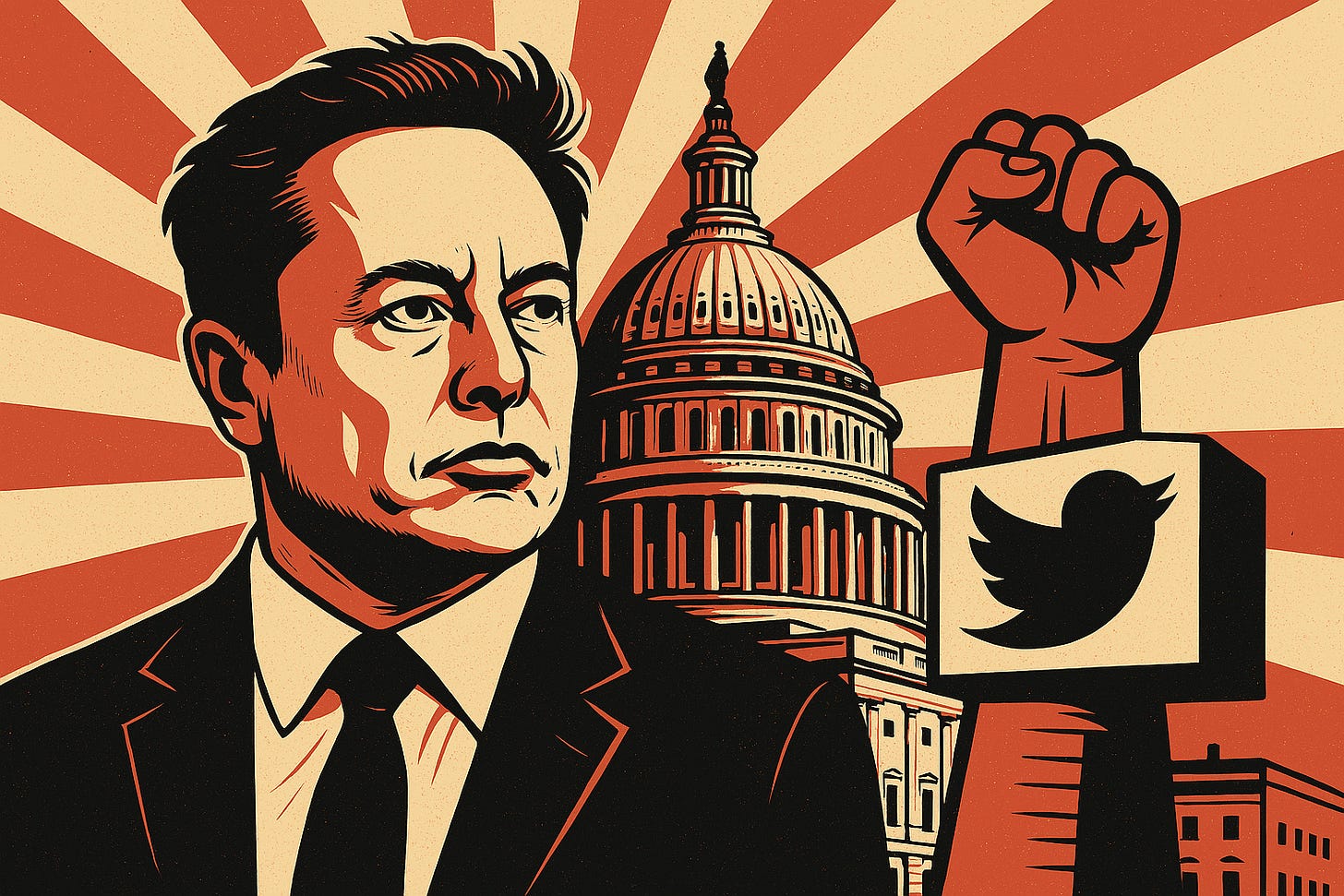Elon Musk: The Rise of an American Oligarch
A critical exploration of Elon Musk’s transformation from a celebrated tech entrepreneur into a powerful political actor aligned with far-right ideologies.
Elon Musk likes to present himself as a genius entrepreneur who built his empire entirely from scratch, but that narrative falls apart under closer scrutiny. By now, we know his family's considerable wealth, particularly from his father's stake in an emerald mine in Zambia, gave Musk significant advantages from the outset. Despite his constant denials, it’s clear he benefitted from these early privileges. Pretending otherwise is both dishonest and deliberately misleading.
Tesla’s story provides further evidence of Musk’s pattern of rewriting history. Musk didn't found Tesla; he joined the company as an investor in 2004 and quickly manoeuvred to remove the original founders, Martin Eberhard and Marc Tarpenning. After internal disputes, Musk became CEO and, through a 2009 lawsuit, legally compelled recognition as a co-founder. This isn't the story of a visionary entrepreneur, it’s the story of someone who leverages power, influence, and wealth to overshadow the contributions and efforts of others for personal glorification.
Musk’s political activities represent an escalating danger to democracy. In the 2024 U.S. presidential election, Musk emerged as the largest political donor by far, injecting over $290 million into Donald Trump and Republican campaigns through his super PAC, America PAC. Even more troubling are his controversial voter incentive schemes, such as million-dollar giveaways, designed explicitly to influence voter registration and turnout. These tactics not only blur ethical boundaries but openly challenge the fundamental principles of fair electoral practices. This level of political manipulation cannot be dismissed lightly, it poses a real and tangible threat to democratic processes.
His ownership of the social media platform X compounds this threat significantly. Musk uses X to amplify disinformation and conspiracy theories, systematically eroding public trust in democratic institutions. He regularly disseminates false claims about voter fraud and election integrity, dangerously undermining confidence in the electoral process. Musk's role in promoting this misinformation is not simply irresponsible, it constitutes a deliberate assault on the foundations of democracy itself.
The ideological transformation of Elon Musk from a celebrated environmental advocate to an active supporter of far-right politics is profoundly concerning. Initially praised for promoting sustainable energy and electric vehicles, Musk now aligns closely with Trump and other far-right personalities. His recent statements actively undermine climate science, and he advocates for deregulation policies directly opposed to environmental protection. Musk's earlier green image increasingly appears to have been a cynical marketing strategy rather than a sincere commitment to environmental sustainability.
Musk's latest strategic move, the $33 billion acquisition of social media giant X by his AI company, xAI, should serve as a clear warning about the extent of his growing power. The integration of advanced artificial intelligence with social media control dramatically enhances Musk's capacity to influence public discourse, propagate misinformation, and manipulate elections at an unprecedented global scale. Given X's established track record of spreading harmful misinformation, especially around election cycles, this acquisition mirrors authoritarian methods used by oligarchies to consolidate power over media and politics.
The rise of Elon Musk reflects the broader emergence of a new American oligarchy, and he stands prominently at its forefront. His massive financial contributions to politics, expansive control of media platforms, and involvement in key government roles, including Trump's Department of Government Efficiency, echo the tactics historically employed by oligarchs in Russia and other authoritarian regimes. These powerful individuals consistently exploit political influence to secure policies that favour their personal business interests, severely undermining democratic accountability and transparency.
Musk’s trajectory from innovative tech entrepreneur to influential political kingmaker and misinformation magnate signifies an urgent threat to democratic stability. His unchecked consolidation of wealth, media influence, and political clout demands immediate scrutiny and intervention. Addressing and curtailing Musk's burgeoning power is crucial, not only to preserve democratic integrity but to prevent a dangerous precedent whereby immense private wealth dictates public policy, governance, and societal norms. Ensuring robust checks and balances against such influence is essential if democratic societies are to resist the encroachment of oligarchic power that Musk so clearly represents.



